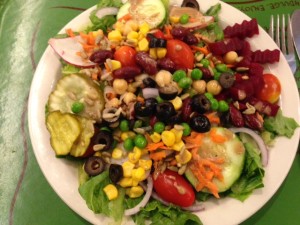If you’ve been following the advice of plant-based nutrition leaders for any length of time, you’re probably aware that no more than 10% of our calories should come from protein. And yes, the type of protein matters greatly (animal vs plant).
Studies show that those who consume lots of animal protein have a much greater risk of cancer death and a 73x higher risk of death by diabetes; those who consume “moderate” protein (10%-19% of calories) have roughly 23x the risk of dying from diabetes.
So what about the study which suggests elderly people have a higher protein requirement? As Dr. Michael Greger explains in this article, not only is evidence lacking to support that study, there’s a Japanese study which proves the opposite. A study in 2008 found NO difference in the protein requirements between young and old.
 When it comes to muscle mass, sedentary people over age 65 lose about 1% of their muscle mass every year, but older adults on bed rest may lose muscle mass 6x faster than young people. But muscle mass is maintained with exercise and strength training at any age, so it’s use it or lose it for everyone.
When it comes to muscle mass, sedentary people over age 65 lose about 1% of their muscle mass every year, but older adults on bed rest may lose muscle mass 6x faster than young people. But muscle mass is maintained with exercise and strength training at any age, so it’s use it or lose it for everyone.
Dietary-wise, vegetables are associated with cutting the odds of low muscle mass by roughly 50%. The alkalizing effects of vegetables neutralize the mild, metabolic acidosis that occurs with age. Dr. Greger explains that muscle wasting appears to be a response to acidosis (when our kidneys start to decline due to eating an acid-promoting diet which includes fish, pork, chicken, and cheese). Beans and other legumes are the only source of protein that’s alkaline and positively associated with muscle mass in all women ages 18 through 79.
Exercise and plant-based nutrition are key to health, vitality, and the ability to function – at any age.

